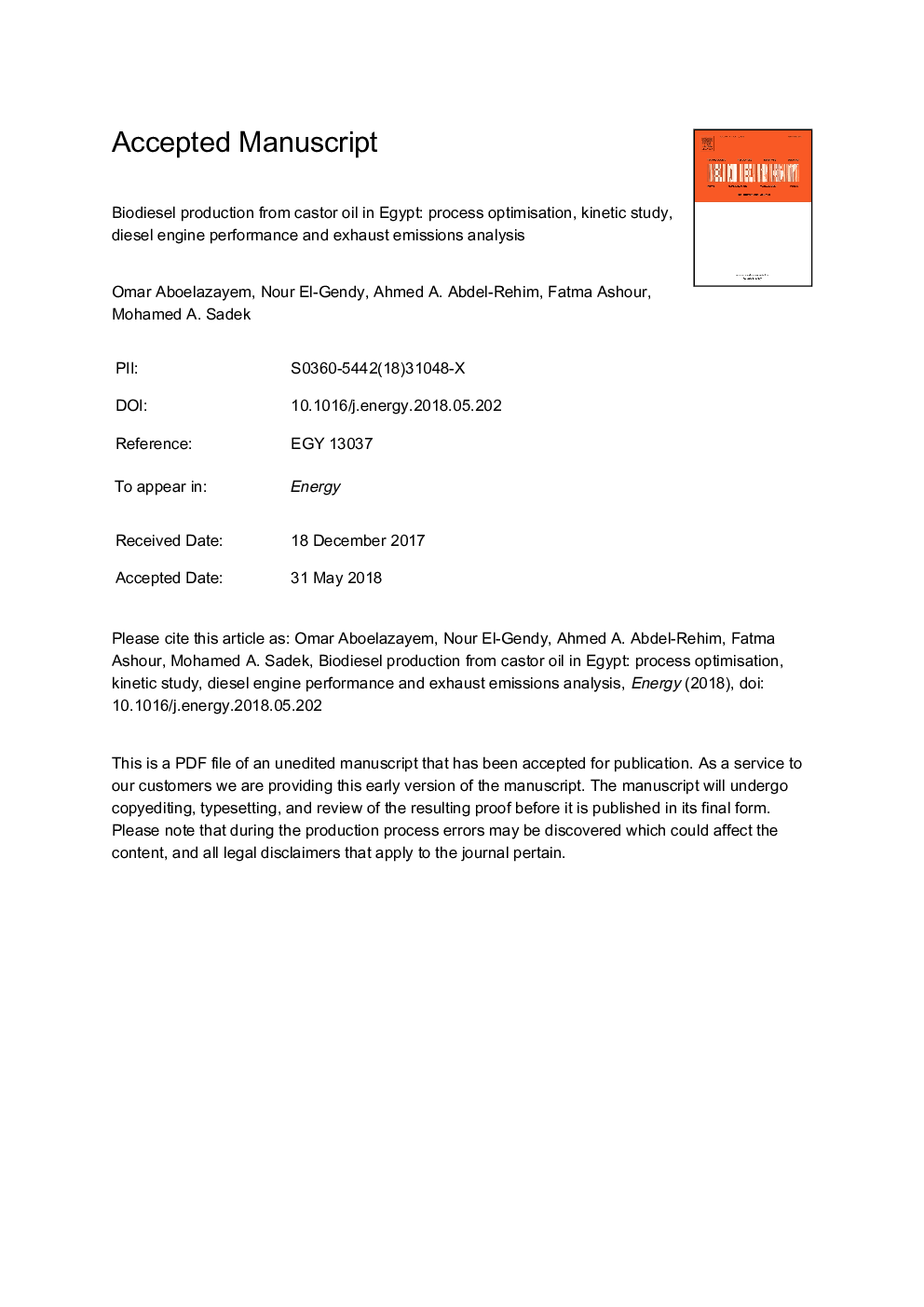| Article ID | Journal | Published Year | Pages | File Type |
|---|---|---|---|---|
| 8071334 | Energy | 2018 | 29 Pages |
Abstract
In this study, biodiesel production from castor oil has been investigated. Five independent variables including; methanol to oil (M:O) molar ratio, catalyst concentration, reaction temperature, time and stirring rate have been chosen to investigate their effect on biodiesel yield. Response Surface Methodology (RSM) via Rotatable Central Composite Design (RCCD) has been used to evaluate the influence of the independent variables on the reaction response. Analysis of variance (ANOVA) has been used to investigate the adequacy of the predicted model. The optimum conditions for 97.82% biodiesel yield have been achieved at M:O molar ratio of 5.4:1, potassium hydroxide (KOH) catalyst concentration of 0.73%, temperature of 64â¯Â°C, time of 2.5â¯h and stirring rate of 320â¯rpm. The predicted optimum conditions have been validated with 0.59% relative error from experimental results. The kinetic calculations concluded that reaction is pseudo second order with reaction rate constant, activation energy and frequency factor of 0.16â¯Mâ1â¯minâ1, 21.95â¯kJ/mol and 6.02â¯Mâ1â¯minâ1, respectively. Finally, a case study investigating the performance and emissions on a direct injection (DI) diesel engine fuelled by biodiesel/petro-diesel blends (5, 10, 15 and 20% v:v) has been performed concluding significant reduction of greenhouse and toxic gases.
Keywords
FAAEKOHTANPAHBSFCfatty acids methyl estersOptimisationBiodieselanalysis of varianceANOVAbrake specific fuel consumptionTriglyceridesdirect injectionparticulate matterBrake thermal efficiencyResponse surface methodologyRSMCastor oilTotal Acid NumberDiesel engine performancePotassium methoxideFAME یا fatty acid methyl esters HydrocarbonsPolycyclic aromatic hydrocarbonsBTEPotassium HydroxideGlycerol
Related Topics
Physical Sciences and Engineering
Energy
Energy (General)
Authors
Omar Aboelazayem, Nour Sh. El-Gendy, Ahmed A. Abdel-Rehim, Fatma Ashour, Mohamed A. Sadek,
